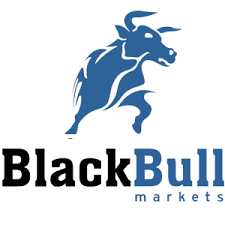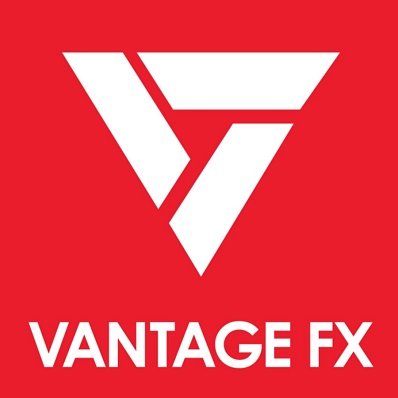The simplest definition of Forex is that it represents the act of trading currencies from different countries against each other.
Forex is acronym of Foreign Exchange, the very thing that makes possible international transactions such as imports and exports and the movement of capital between countries.
The value of one foreign currency in relation to another is defined by the exchange rate.
List of the Best Forex trading platforms

Blackbull Markets
Forex trading is done with pairs of currencies, foremost among them being the USD (US Dollar), EUR (Euro), JPY (Japanese Yen), CHF (Swiss Franc) and GBP (Great Britain Pound). Of course it is possible to trade other currencies against each other, but these five represent the most important currencies for world trade, therefore they are known as the five majors.
In any pair the first currency represents the “base” and the second one is the “counter” or quote currency. The value of the base currency is always 1.
One of the Largest Markets in the World
With a daily trading volume that is 50 times larger than the New York Stock Exchange, there are always broker/dealers willing to buy or sell currencies in the FX markets. The liquidity of these markets, especially liquidity of the major currencies, helps ensure price stability. Traders can almost always open or close a position at a fair market price.
Traders come from every walk of life and include banks, central banks, currency speculators, corporations, governments, and financial institutions.
The average daily volume in the global foreign exchange and related markets is growing every day.
Daily turnover was reported by the Bank for International Settlements to be over USD 3.2 trillion in April 2007.
Since then, the market has continued to grow. According to Euromoney’s annual FX Poll, trade volumes grew another 41% between 2007 and 2008.
Of the USD 3.98 trillion daily global turnover, trading in London accounted for around USD 1.36 trillion, or 34.1% of the total, making London by far the global hub of foreign exchange. In second and third places respectively, trading in New York accounted for 16.6%, and Tokyo accounted for 6.0%.
An Exciting and Constantly Moving Market
What really prevents people from entering this market is the seemingly erratic movement of the currencies that almost defy common sense.
For example, it used to be that when a central bank announced an increase in the interest rate, that currency would have to move up compared to the rest.
This is because the investors would be more attracted to it because of higher profits.
But higher interest rate means a lower liquidity on the stock market, which (of course) worries investors and will in fact move that currency down compared to rest.
But this should really not deter you from opening an account with a brokerage firm. With a little bit of method and market analysis you, too, can make more money trading currencies than trading stocks.
Forex Compared to Stock Trading
One of the most important aspects to consider when thinking in terms of Forex compared to Stock Exchange is how vulnerable each is to liquidity risks.
Liquidity is simply the amount that can be bought or sold without effecting its price. The stock market suffers from a low level of liquidity because any large transactions buying or selling shares can have a major effect on its market price.
Because of the lower trade volume, investors in the stock markets are more vulnerable to liquidity risk, which results in a wider dealing spread or larger price movements in response to any relatively large transaction.
Say, for example, you want to sell 100 shares of Best Company Ever at USD 32.00 per share. You, or your broker, need to find someone to buy your shares at that price. That is liquidity.
Low liquidity can wreak havoc on equities markets.
Let’s say now that a trader was to sell 400,000 shares of Best Company Ever at USD 30.00, equals $1.2 million. This single transaction would make roughly 1% of the markets volume in one of the major stock exchanges.
When that order is put through the system, the market is now flooded with Best Company Ever stock.
Even if the stock is attractive and buyers are willing, its value may still plummet if there is not enough liquidity.
The FX market, on the other hand, is less prone to huge whipsaws from large buy/sell orders because of the enormous amount of buyers and sellers readily available.
Another very interesting advantage of Forex vs stocks is the possibility to short sell without an uptick. Trading opportunities exist in the currency market regardless of whether a trader is long or short, or which way the market is moving. Since currency trading always involves buying one currency and selling another, there is no structural bias to the market.
Add to that another two very important issues: the stock market is very susceptible to large fund buying and selling and analysts and brokerage firms are less likely to influence Forex market.
What does this mean?
First of all we know what happens when certain big players have an interest in keeping the value of a certain stock up or down irrespective of the company’s performance or market trends. This is very unlikely to happen in the Forex market because of the abounding liquidity.
And last, but certainly not least, analysts and brokerage firms can (and will) influence how the public perceives one company versus another because they benefit directly from this.
It is an all but impossible job to try to deceive the public about a whole country and its currency. Civil unrest or natural disasters spell troubles, no matter what analysts have to say about it.
Forex Terminology Explained
As a specialized financial market, the Forex market has its own terminologies that are unique to this market.
Common everyday words like “long” or “short” take on a whole new meaning when used in the Forex market.
For the layman, these words might mean the length of an object while for a Forex trader; these are used to denote the market position that a trader is holding to going to hold.
Listed below are some of the more common terminologies that are specific to the Forex market:
“Pip”
The smallest unit of fluctuation that a currency can have is called the “pip”. Generally, Forex are traded in terms of fractions and the majority of these currencies are expressed in terms of four decimal points. For example, the USD/CHF rate is expressed like 1.6550 and likewise the EUR/USD as well.
The exception to this rule is the USD/JPY currency pair which is expressed up to 2 decimal points only. The “pip” therefore refers to the smallest change of the quote. For example, one pip for most currencies refer to a change of 0.0001 while for the Japanese yen, one pip refer to a change of 0.01.
“Spread”
In the Forex market, there is no commission applicable when a trader executes a trade. However, instead of commission charges, Forex trader have to pay the market maker what is term as the “Spread”.
This is the margin of difference between the “Ask” and the “Bid” price. Furthermore, unlike commissions, “spread” are only incurred on one side of the transaction, i.e. when you are purchasing the currency pair. In short, the “spread” is actually a round turn cost.
“Rollover Charges”
In Forex, when we are discussing about “roll over”, we are actually talking about holding the purchase of a currency pair overnight. When this occurs, there is a “roll over” fee receivable or payable depending on whether you are profiting or losing on your trade for that currency pair.
In essence, this is interest that you earned or pay as a buyer or seller respectively. The “roll over“ fee is derived from the difference between the prevailing interest rates of the two currencies of the currency pair.
Cross Quote/Cross Currency
Most of the currencies that are traded in Forex are against the US dollar as one of the currency in the currency pair. Nevertheless, there are situations when neither of the currencies that are traded in the currency pair is the US dollar. When this is the case, the currency pair is regarded as a cross currency pair.
As such any quotations for any of these cross currencies are known as cross quotes. A good example is the EUR/JPY. The quote is derived by measuring the Euro against the US dollar and subsequently the Japanese Yen against the US dollar.
Margin
In Forex, the word “margin” is used to denote the deposit that is placed with the brokerage when you make a trade. It represents a form of collateral that is used to offset the losses that you might incur while trading. It is also sometimes known as the “minimum security”.
However, you are normally required to place this minimum deposit when you open your trading account with the brokerage and not when you just start to trade. This margin amount also varies from broker to broker.
Margin Call
In the event that you are incurring losses while trading and the initial margin deposit is inadequate to cover this loss, you might be subjected to what is called a “margin call”. This is a situation where your broker will inform you that you are required to top up the margin deposit failing which they will close your market position in order to offset the shortfall.
Leverage
In Forex, leverage mean utilizing the margin facility to enable a Forex trader hold a larger market position than their actual capital would allow. For example, with a margin of 100 to 1, this mean you are able to trade up to a hundred thousand worth of currencies with just a deposit of $1,000.
By leveraging, you will have more opportunities to reap bigger profits. Nevertheless, the downside is that, your losses will also be multiplied when you utilize this leveraging factor.
Forex Trading Training
Forex trading need not be complicated, anyone can have a go at it and anyone can make (or lose) a little money.
But to be in the Forex trade business you need to be willing to learn and practice which is where some Forex trading training can help.
One of the big advantages of the Forex brokerage is that there are no fees. You open an account with a few hundred pounds (sometimes with even less than £100) and you can start trading right away.
Also your trades are instantly executed under normal market conditions. You also have price certainty on every market order under normal market conditions.
What you click is the price you get. You’re able to execute directly off real-time streaming prices. There’s no discrepancy between the displayed price shown on the platform and the execution price to enter your trade. Isn’t it nice?
Start Trading Forex Slowly
One other thing that you should know before you start trading is the amount of knowledge you require to make informed decisions. Many brokerage firms offer demo accounts.
Sign up for such accounts as many times as you need. Make sure that you are comfortable with forex trading training, that you understand all the language terms associated with Forex trading and have at least basic knowledge of all the tools you can get to help you manage risk.
Another thing you have to realize is that even though Forex trading gives you the opportunity to instantly see your performance, it can get very emotional.
If you do not trust your reactions under stress, then work on it.
Again, demo accounts come in handy and all sorts of other tools that signal you when to buy, sell or hold.
Practice until you feel you are the master of your emotions.
Then start trading real money on the smallest possible amount and see if you can handle the pressure. Luck is a factor as in any human enterprise, but Forex trading training is not gambling, so hard work, continuous learning, perseverance and patience are required in copious amounts.
Learn From Those ‘in the Know’
Another factor which is essential that you keep in mind is that you get no free lunch.
The internet is swarming with websites that will teach you everything you need to know to successfully start Forex trading training in 5 minutes flat.
Unfortunately some of these training programs for Forex that are not what they are made out to be.
However, there are also some absolutely fantastic courses that can teach you how to trade profitably and make your trading easier.
Be careful to fully research any of these offers before buying, if you want my opinion then you can read my Forex training course reviews for my most recommended courses.
So now you are ready to open an account with a Forex broker and start learning to trade




